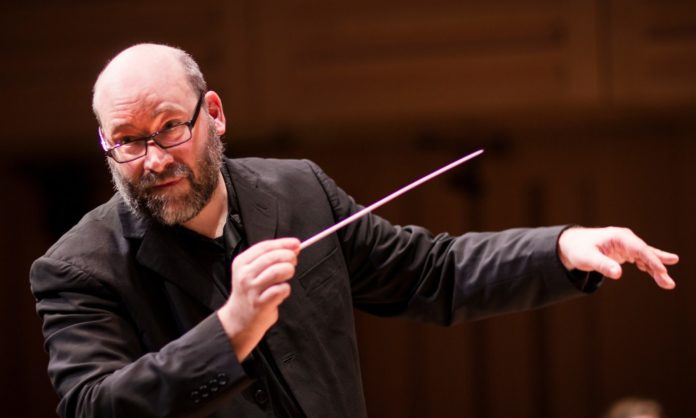
Acarol, written for the winter solstice in 2015, and anticipating the spring to come, was the starting point for David Matthews’s new symphony. It’s his ninth, but, as if determined to avoid the grandiloquence that composers have so often felt obliged to employ when they reach that fateful symphonic number, Matthews has produced a modestly proportioned work, whose five movements last just over half an hour.
Much of the opening movement does stem from the guileless carol melody that had fired the creative process. Matthews likens it to the naive theme that begins Nielsen’s Sixth Symphony, but where in that work the result is sardonic and almost nihilistic, here the ingenious transformations generate exuberant invention. A pair of scherzos, one brassily assertive, the other more restrained and enigmatic, frame the central slow movement, whose delicate webs of strings seem to me the only point at which the music briefly loses its focus. The carol tune returns in affirmative C major to provide the climax to the finale, although the Sibelius-like cadence that follows almost sounds like a quotation, in a work that otherwise manages to seem unmistakably British without ever becoming derivative.
Matthews has recently become the English Symphony Orchestra’s composer in association, and that orchestra and its artistic director Kenneth Woods gave the Ninth its premiere. Even though the scoring is never remotely heavy-handed, the acoustics of St George’s, so matchlessly warm and lucid for solo recitals and chamber music, did struggle to cope with the full orchestral sound, and Woods’ rather blunt conducting exacerbated that, too.
There were some more moments of sonic overload in the two works by Elgar that made up the rest of the programme. Sheku Kanneh-Mason was the hugely impressive soloist in the Cello Concerto, wonderfully assured and poised, and always at pains to ensure the music’s intrinsic eloquence spoke for itself. There was also the work that has become a bit of a calling card for Woods and his orchestra – Donald Fraser’s orchestral arrangement of the Piano Quintet. Though it’s an expert exercise in orchestration, I’m not convinced it does Elgar’s music any favours. Everything became a bit too relentless and insistent by the end.























